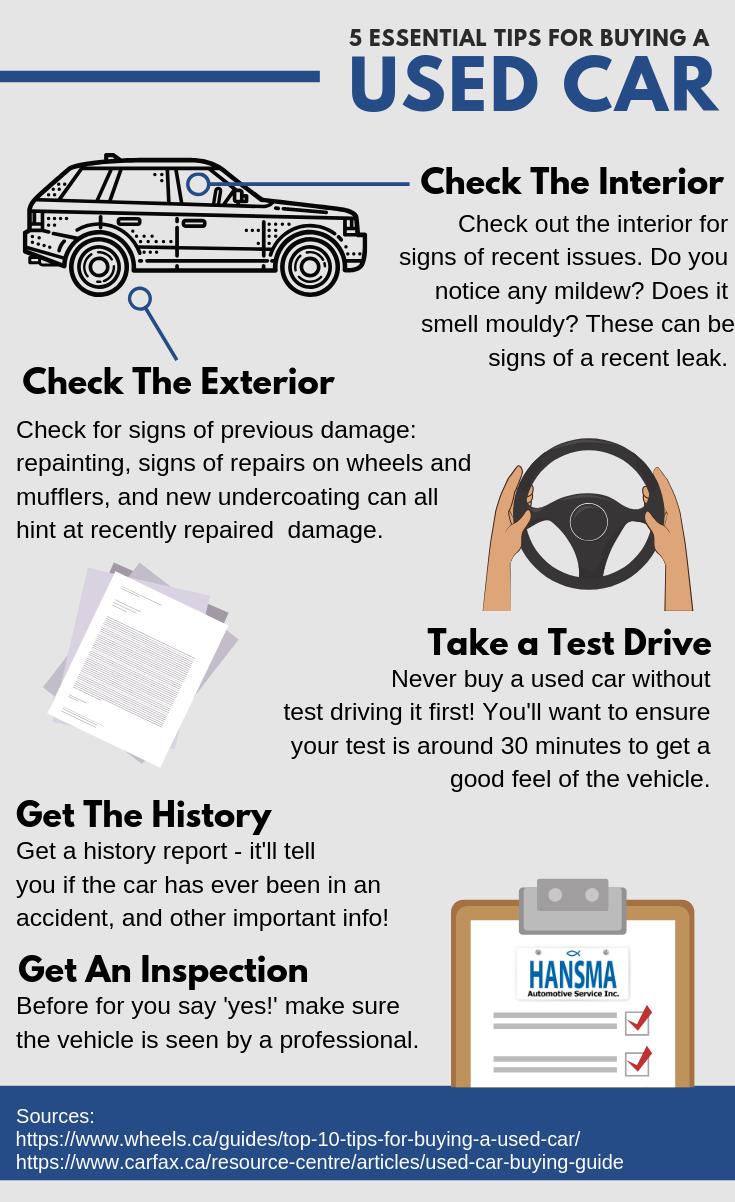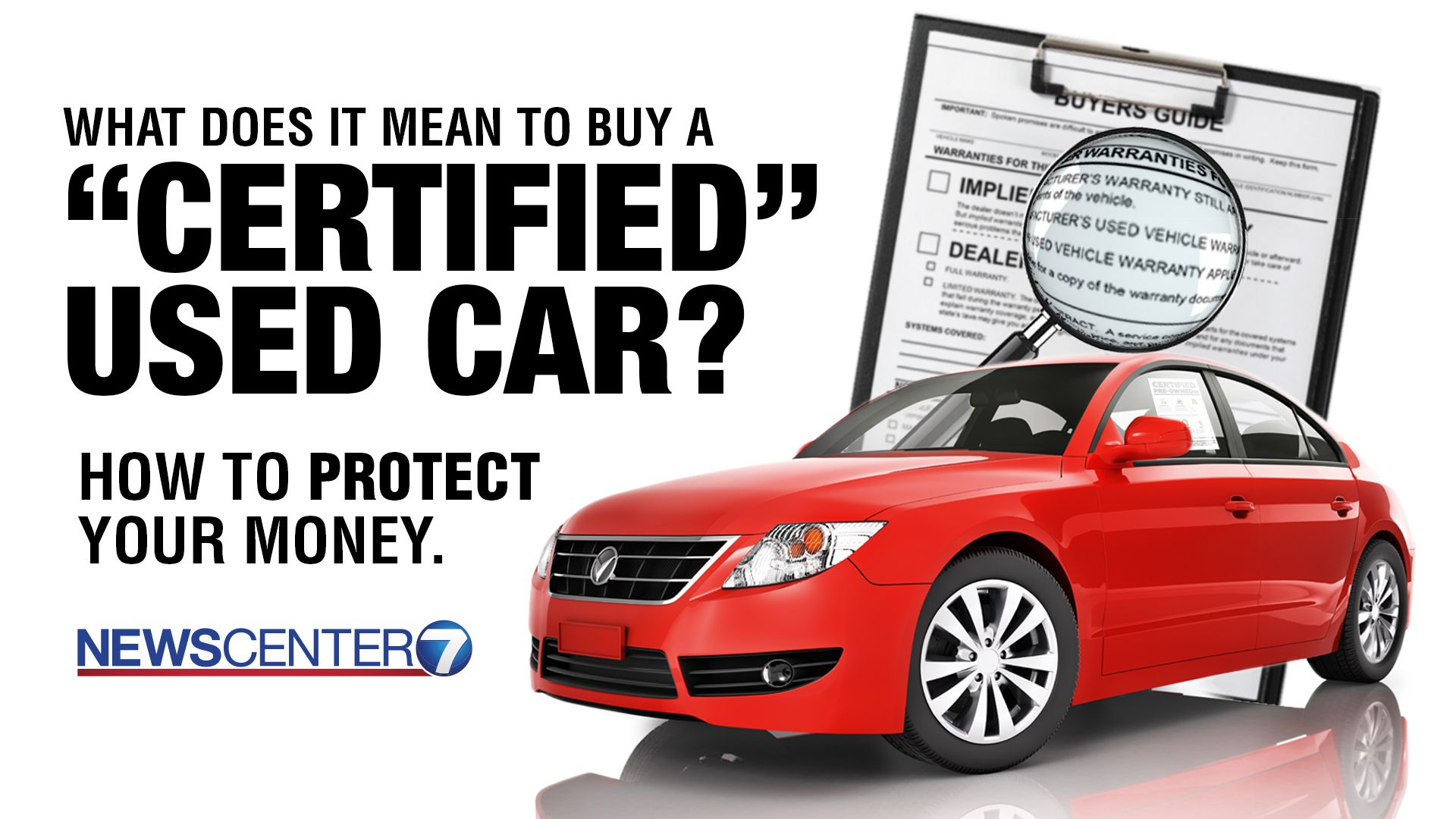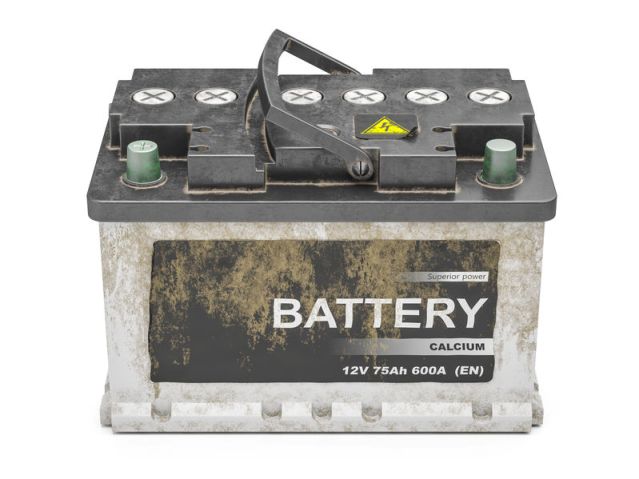What to Know When Buying a Used Car
When buying a used car, check its history and condition thoroughly. Ensure a mechanic inspects it before purchase.
Purchasing a pre-owned vehicle can be a smart financial move, but it requires due diligence. Embarking on the journey to find the perfect used car means prioritizing reliability, affordability, and the overall integrity of the vehicle. An informed buyer will explore the car’s maintenance records, accident history, and current status, which includes mechanical performance and bodywork conditions.
A comprehensive inspection by a trusted mechanic is essential to uncover any hidden issues. Arming yourself with knowledge about the car’s market value and ownership history helps negotiate a fair price. This introduction sets the stage for discussing the crucial steps one should take to secure a dependable and cost-effective used car.
The Hunt For Reliable Wheels
The Hunt for Reliable Wheels begins with a strategy that navigates through the myriad of choices and options. A used car promises value, but caution is key. Smart buyers know that finding the perfect balance between cost and quality requires research, patience, and a bit of savvy.
Devising Your Car Shopping Strategy
Finding a suitable used car is not down to luck; it’s about having the right plan. Start by setting a clear budget, remembering to include extra costs like taxes, registration, and potential repairs. Next, decide where to buy—from dealers, auctions, or private sellers. Each option carries different advantages and risks. Research online platforms and local classifieds to compare prices and get a feel for the market.
Identifying Your Transportation Needs
Before diving into the sea of available used cars, reflect on your daily transportation requirements. Consider these elements:
- Space: Cargo capacity and seating.
- Fuel Efficiency: How much you’ll spend on gas.
- Reliability: Models known for longevity.
- Features: Essential tech, safety, and comfort options.
Match your list with models that suit your lifestyle and stick to it during your search. This focused approach eliminates time wasted on unsuitable vehicles and helps in targeting the best prospects.
:max_bytes(150000):strip_icc()/7-mistakes-avoid-when-buying-used-car.asp-V1-dbc23496b5164854a581f89b4683a5b5.jpg)
Credit: www.investopedia.com
Financial Considerations
Buying a used car involves more than the sticker price. It’s about understanding the full financial commitment. From setting a budget to calculating the total cost of ownership, smart planning leads to better decisions. Let’s delve into these critical financial aspects to help guide your used car purchase.
Setting A Realistic Budget
Setting a budget is crucial before browsing for a used car. Remember, your budget should be what you can comfortably afford without stretching your finances. Here’s how to approach it:
- Review monthly income and expenses
- Include savings for unexpected costs
- Consider a down payment and financing options
With a clear budget, you’ll avoid overspending and focus on cars within your financial reach.
Understanding The True Cost Of Ownership
Owning a car means more than just making payments on it. True cost includes several expenses over the car’s life. Explore these categories:
| Expense | Description |
|---|---|
| Insurance | Yearly cost can vary based on the car’s model and your history. |
| Maintenance | Regular upkeep is necessary for any vehicle’s longevity. |
| Repairs | Older cars may need more frequent repairs. |
| Fuel | Consider your travel habits to estimate fuel costs. |
| Depreciation | Used cars have a slower depreciation rate than new cars. |
Anticipate these expenses to gauge if a particular car fits your long-term budget.
Researching Your Options
Before diving into the market for a used car, savvy shoppers need to do their homework. Researching your options is a critical step. It helps you understand what you want, what you need, and what you should avoid. Let’s explore how to use online tools and the importance of vehicle history reports in your research process. Remember, the right information leads to better decisions.
Leveraging Online Tools And Reviews
Many platforms and websites offer detailed information about used cars. They provide valuations, reviews, and comparison tools. This data can guide you toward a fair price and reliable model. Comprehensive sites aggregate car listings from multiple sources, simplifying your search.
- Price comparison tools help identify average costs.
- User reviews reveal the real-world pros and cons of owning certain models.
- Expert ratings guide buying decisions based on performance and safety tests.
Use these online tools to create a shortlist of suitable vehicles.
The Importance Of Vehicle History Reports
Never overlook a vehicle’s past. A history report can disclose crucial details about a car’s background. This includes accidents, service records, and previous ownership.
| Report Feature | Why It Matters |
|---|---|
| Title History | Shows if the car has a clean, salvaged, or rebuilt title. |
| Accident History | Reveals if the vehicle has been in accidents. |
| Odometer Readings | Flags potential odometer fraud. |
| Service Records | Indicates regular maintenance or lack thereof. |
Secure a report early in your search. It ensures you avoid cars with hidden issues.
Inspecting The Vehicle
Before taking the plunge into buying a used car, a proper vehicle inspection can save both money and headaches. The physical condition, performance, and history of a car weigh heavily on its reliability. Without correct inspection, a shiny exterior may hide costly issues.
The goal is to identify problems and gauge the car’s true worth. It is imperative to dive into specifics, from the undercarriage to the engine’s roar. Below, discover the essentials of mastering a thorough test drive and why a professional inspection stands as a cornerstone before sealing the deal.
Learning The Art Of A Thorough Test Drive
- Check all lights and ensure they function correctly.
- Listen for unusual noises that could indicate engine or suspension issues.
- Feel the brakes, noting any spongy pedals or grinding sounds.
- Monitor the temperature gauge for overheating signs.
- Test acceleration for smooth engine performance.
During a test drive, the car’s response to real-world conditions becomes apparent. Pay attention to the steering feel, brake responsiveness, and transmission fluency. Here’s a simple checklist to keep handy:
| Function | Observation |
|---|---|
| Engine Start | Immediate, without hesitation |
| Alignment | Straight, without pulling aside |
| Shifting Gears | Smooth, without delay |
| Noises & Vibrations | Absent or minimal |
| Air Conditioning | Fully operational |
Why A Professional Inspection Is Crucial
A professional inspection can uncover issues that lay hidden from the untrained eye. Certified mechanics have the tools and expertise to diagnose underlying problems. The benefits are clear:
- Identify potential safety hazards that aren’t obvious during a standard test drive.
- Spot previous unreported accident damage that could affect the car’s integrity.
- Assess the need for upcoming maintenance, saving on future expenses.
- Provide a professional assessment of the car’s overall mechanical condition.
- Enable better negotiation on price with a detailed condition report.
Schedule an inspection at a trusted mechanic or a specialized automotive service. It’s a small investment for peace of mind and a transparent look at your potential new car.
Closing The Deal
So you’ve found the perfect used car and are ready to seal the deal. The closing process is the final hurdle, and doing it right can save you both time and money. Here are expert tips to ensure a smooth transaction.
Negotiating With Confidence
Negotiation is an art, and with the right approach, you can drive home with a great deal. Remember these points:
- Do your homework: Research the car’s value ahead of time.
- Be polite: A respectful demeanor can go a long way.
- Start low, but be reasonable: Offer a fair price that’s below your maximum budget.
- Don’t rush: Take your time with the negotiation process.
- Be ready to walk away: If the deal isn’t right, don’t be afraid to look elsewhere.
Paperwork And Legalities Of Car Ownership
Handling the paperwork is crucial for a legitimate purchase. Ensure all documents are in check:
| Document | Description | Importance |
|---|---|---|
| Title | Proof of ownership | Must be clear and in the seller’s name |
| Bill of Sale | Sale agreement with price | Needed to register the car |
| Service Records | Car’s maintenance history | Shows how well the car was cared for |
| Odometer Disclosure | Confirms car’s mileage | Required by federal law |
Make sure to also check your local DMV requirements for any additional paperwork. Once all the documents are signed and dated, you’re ready to hit the road in your new purchase!
Post-purchase Tips
So you’ve found the perfect used car and made the purchase – congratulations! The road ahead should be smooth, right? Not so fast. With a used car, the journey is just beginning. Let’s talk about some post-purchase tips to ensure your vehicle stays in top shape and doesn’t surprise you with any early issues.
Maintenance For Longevity
Maintaining your car is the key to its longevity. Think of it like caring for a garden; regular attention yields the best results. Here’s a simplified maintenance checklist:
- Oil changes – Every 5,000 miles or as recommended.
- Tire rotations and balances – Every 6,000 miles to prevent uneven wear.
- Brakes – Check at every service appointment.
- Air filter – Replace every 12,000 miles to keep your engine clean.
- Fluids – Monitor and top up coolant, brake, and transmission fluids regularly.
Refer to the manual for model-specific advice.
What To Do In Case Of Early Issues
No one likes surprises, especially shortly after a car purchase. Here’s what to do should problems arise:
- Document everything – Keep records of unusual noises or behavior.
- Check the warranty – Some items might still be under coverage.
- Contact the seller – Inform them of the issue. They may assist.
- Seek professional help – Certified mechanics can diagnose and fix problems.
Remember, proactive steps today prevent major repairs tomorrow.

Credit: charlottelegaladvocacy.org
Frequently Asked Questions Of What To Know When Buying A Used Car
What Is Important To Consider When Buying A Used Car?
Examine the vehicle’s history report for past issues. Assess the car’s physical condition thoroughly. Confirm the mileage aligns with the car’s age and condition. Ensure maintenance records are complete and consistent. Always take a test drive to gauge performance and comfort.
How Many Miles Is Good For A Used Car?
Generally, a used car with under 100,000 miles is often preferred, as it typically indicates less wear and potential for extended service life.
What Is The Best Year To Buy A Used Car?
The best year to buy a used car is typically three to four years after manufacture. Depreciation during this period means lower prices for buyers, while cars often still retain modern features and reliability.
What Are Two Disadvantages With Buying A Used Car?
Used cars often have higher maintenance costs and a limited, if any, warranty. Their history can also be uncertain, potentially leading to unexpected issues.
Conclusion
Embarking on your used car journey requires diligence and knowledge. Remember to always inspect the vehicle thoroughly, consider its history, and compare pricing. Prioritize reputable dealerships and secure a trusted mechanic’s opinion. With these tips, your next pre-owned purchase should steer towards satisfaction and value.
Drive confidently into the decision-making lane!




